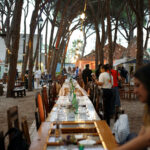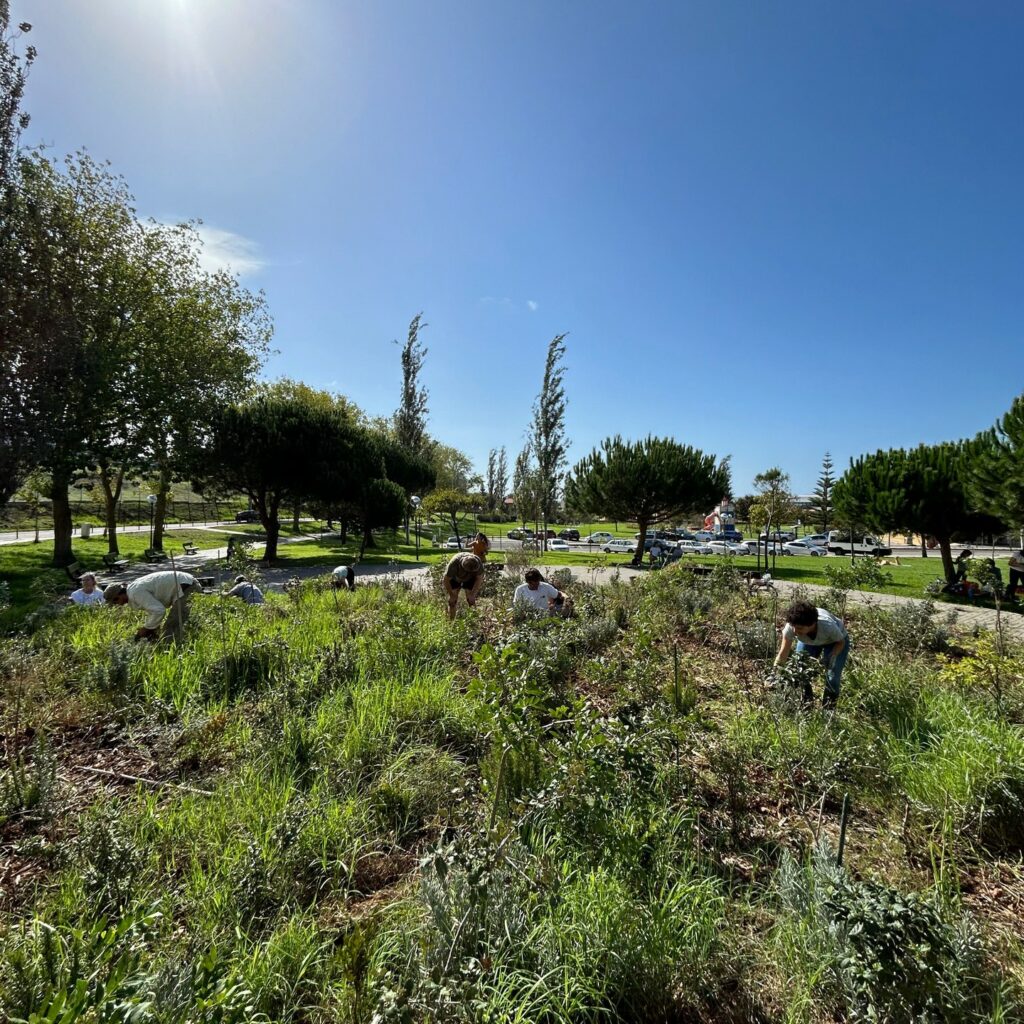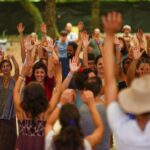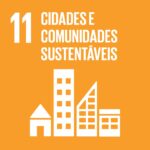
Chefs on Fire. In this festival, leftover food is transformed into energy
Here comes another edition of Chefs on Fire, one of the most important gastronomic festivals in the country. In addition to the sustainability actions that
We didn't find any happenings mapped to your criteria.
Try the traditional search to find articles not yet mapped with RUA.
We didn't find any happenings mapped to your criteria.
Try the traditional search to find articles not yet mapped with RUA.
We didn't find any happenings mapped to your criteria.
Try the traditional search to find articles not yet mapped with RUA.
We didn't find any happenings mapped to your criteria.
Try the traditional search to find articles not yet mapped with RUA.
The Portuguese Mini-Forest Network is the result of the collaboration between various environmental organizations that promote urban and rural resilience and biodiversity through the Miyawaki planting method.
“Rede de Miniflorestas de Portugal” (Portugal’s mini-forests network) is the name of the new initiative that aims to increase the resilience of cities to the effects of climate change and promote urban biodiversity by planting Miyawaki forests. Launched as part of World Cities Day on October 31, the network has already mapped 30 mini-forests in various regions of the country, with plans to expand over the next few years.
The project is aimed at urban and rural communities, educational institutions and local government bodies that aim to transform their green spaces and improve the quality of life of their citizens.
The network is coordinated by six organizations dedicated to environmental and urban regeneration – Biggest Mini Forest, Native Forest/Nativawaky, Forest Impact, Biodiversity Islands, 2adapt and URBEM – which collaboratively promote the planting of Miyawaki forests in urban and rural areas, creating sustainable ecosystems.
“Mini-forests, based on the Japanese Miyawaki method, are dense native forests that grow quickly and provide benefits such as improving air quality, capturing carbon, reducing urban heat, regulating water and creating natural habitats for local fauna [such as insects and pollinators, birds and small mammals] and flora. By transforming degraded urban spaces into self-sustaining ecosystems, the initiative seeks to involve local communities, promote well-being and a sense of belonging,” explains the new Portuguese Mini-Forest Network.
“As far as the project’s implementation phases are concerned, the process usually begins with a detailed assessment of the selected site. Based on the area, climate and soil analysis, only native species are chosen and the land is prepared, adapting this stage to the specific characteristics and location of each space. The planting of a Miyawaki forest is usually a community event that actively involves the local community. As for maintenance, these forests – which can be as small as 100 or 200 square meters – reach full maturity in around 10 years and only require care for the first three years,” Manuela Madonia, co-founder of Forest Impact and one of the spokespeople for the Portuguese Mini-Forest Network, told Peggada.
The new network will give visibility to the mini-forests already planted (including in Évora, Vila Viçosa, Castro Marim, Faro, Silves, Torres Vedras, Peniche and the Lisbon metropolitan area), but also explore future collaborations between members, thus extending these actions nationwide.
“If the impact of our work locally is already immense, all of us together have the scale to act on a national level,” says Sónia Soares, founder of Floresta Nativa / Nativawaky.

According to the press release, the Miyawaki method has become increasingly popular in Europe and has already been used successfully in thousands of projects around the world.
For Manuela Madonia, this initiative is “a significant step in our mission to transform the environment and communities in Portugal. By joining forces, we show that there is no room for competition when the goal is as vital as ours: restoring nature and guaranteeing a sustainable future for all. What is at stake is greater than any individual need,” he said in a statement.
In these projects to create mini-forests, each person is encouraged to “act as a citizen, rather than just as a consumer” and to take “responsibility for being part of the solution”, adds Sasi Kandasamy, founder of URBEM, in the press release.
Interested companies, schools and communities can get in touch with the Network and obtain more information from one of the spokespersons for the Portuguese Mini-Forestry Network, via the following e-mail address manuela@forestimpact.com.


Here comes another edition of Chefs on Fire, one of the most important gastronomic festivals in the country. In addition to the sustainability actions that

From July 31st to August 4th there will be another edition of the Tradidanças festival, the one that gets everyone of all ages dancing for

Greenpeace opens office in Portugal and brings the icebreaker Artic Sunrise. The organization’s focus will be on fighting fires and protecting biodiversity, especially the oceans.

This article addresses an action that promotes change towards more inclusive, safe, resilient and sustainable cities and communities, helping toreduce the adverse environmental impact of cities.
 To discover businesses that are actively working to contribute to this Sustainable Development Goal, click here.
To discover businesses that are actively working to contribute to this Sustainable Development Goal, click here. To read news, interviews or tips related to this Goal, click here.
To read news, interviews or tips related to this Goal, click here.Esta publicação também está disponível em:
![]() Português (Portuguese (Portugal))
Português (Portuguese (Portugal))

